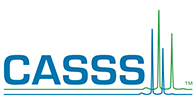
I recently had the opportunity to meet face-to-face with many CASSS members at the Cell and Gene Therapy Products (CGTP) Symposium in Rockville, Maryland. It was a great meeting, bursting with energy, camaraderie, innovative ideas, and good, solid work. At the meeting, I was struck, as I have been these past few months, by the enthusiasm among members for CASSS – what we represent, and where we are going. There is a thread of excellence and pride running through CASSS. The question to ask: how do you interpret this among the trends and best practices in the management of professional societies?
On the trip home, I remembered some research on excellence among professional societies done recently by McKinley Advisors. Researchers and consultants from McKinley set out to know the role staff, board leadership, and other internal and external factors play in the success of societies. Their approach was to do an in-depth study of 11 organizations that had received the highest scores from their members among the hundreds of associations they had studied over the past several years. What is it that sets apart excellent associations and societies from their peers? Furthermore, how does CASSS measure up in these areas?
Not surprisingly, they found that while there is no single formula for success, outstanding professional societies share several fundamental traits:
Excellent professional societies are grounded in member service.
These associations foster strong emotional connections with and among their members by ensuring two-way dialogue, backing up their words with actions, and maintaining a relentless focus on the member. All of the excellent organizations recognize the importance of an engaged and satisfied membership. They prioritize listening to members’ needs through research and acting on the results of that research. Sound familiar? CASSS is nothing if not a professional society that encourages dialog. Watch for more opportunities to share with us your needs and wants in the form of a member survey.
Excellent professional societies demonstrate leadership in action.
These societies have a culture of “servant leadership” combined with a commitment to continuous, data-informed improvement. The leaders of the “excellent 11” typically prioritized others over any personal accumulation of power. They also emphasized the importance of cultivating a healthy and trusting relationship with the board, with an emphasis on fostering trust to have critical conversations. They conduct research to monitor their performance and take action based on those results. I’ve witnessed this servant leadership firsthand in my work with the Board of Directors and many other CASSS leaders. No one is interested in power. Everyone is interested in sharing resources, information, and best practices in order to advance scientific knowledge for the benefit of the public at large.
In excellent professional societies, strategy drives their success.
These societies do more than strategic planning every few years. They actively review and use the plan to make critical decisions and are disciplined in doing so. They are future-focused and take an intentional and data-informed approach to their package of benefits, products, and meetings. These excellent 11 societies know their core: who they are, what they do, and who they serve. Successful societies in general have more focused missions and are not blinded by non-mission critical opportunities or projects. This is an area where the Board and staff have agreed to spend some time and some focused work. Who do we serve? How does our role differ from other societies in this industry? How can we best make a positive impact?
There are many ingredients for success in professional societies, but these three ingredients are a great start. Fortunately, these ingredients are also in good supply at CASSS through our staff, our leaders, and our amazing members.

